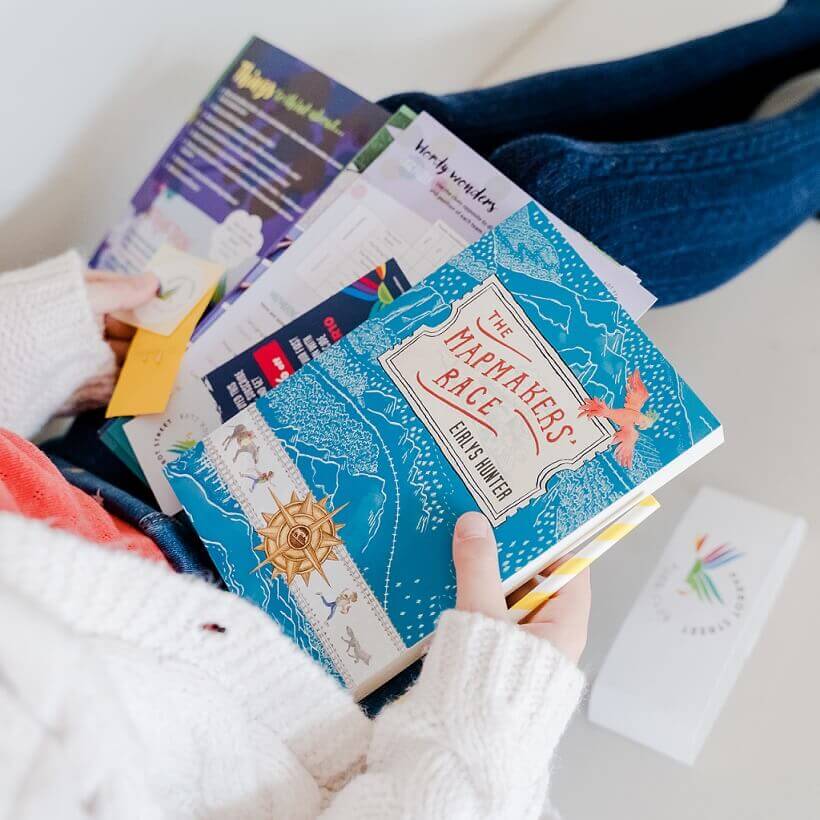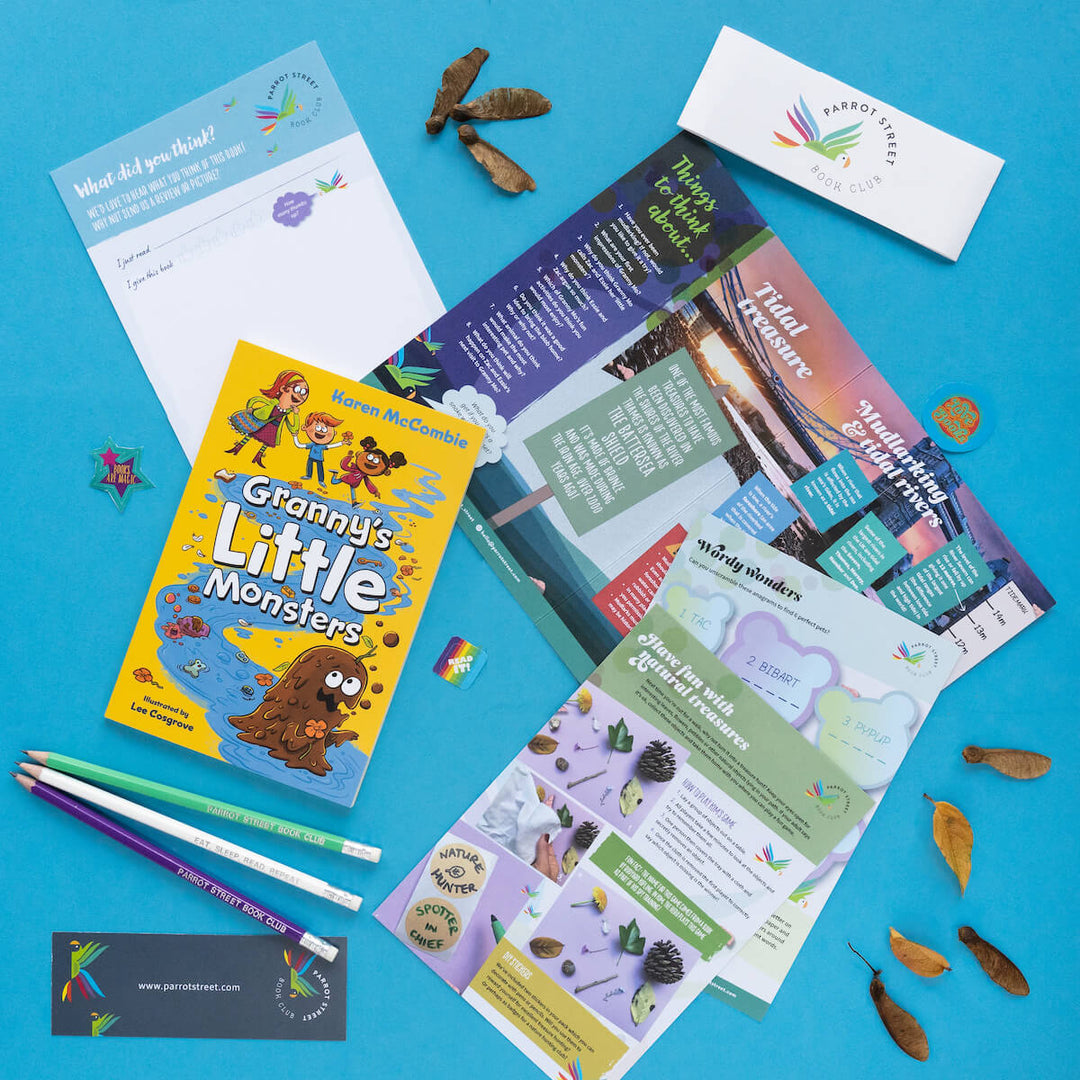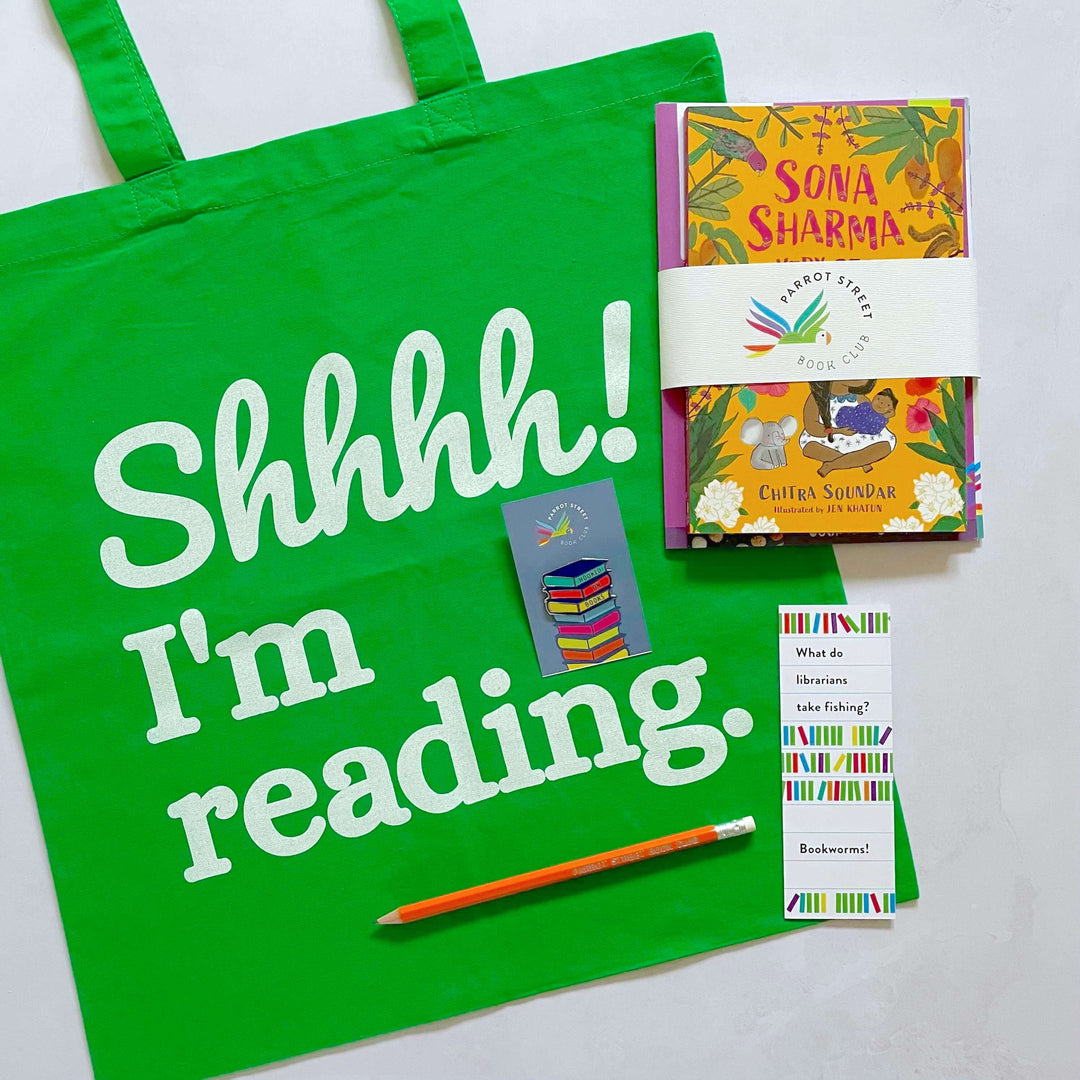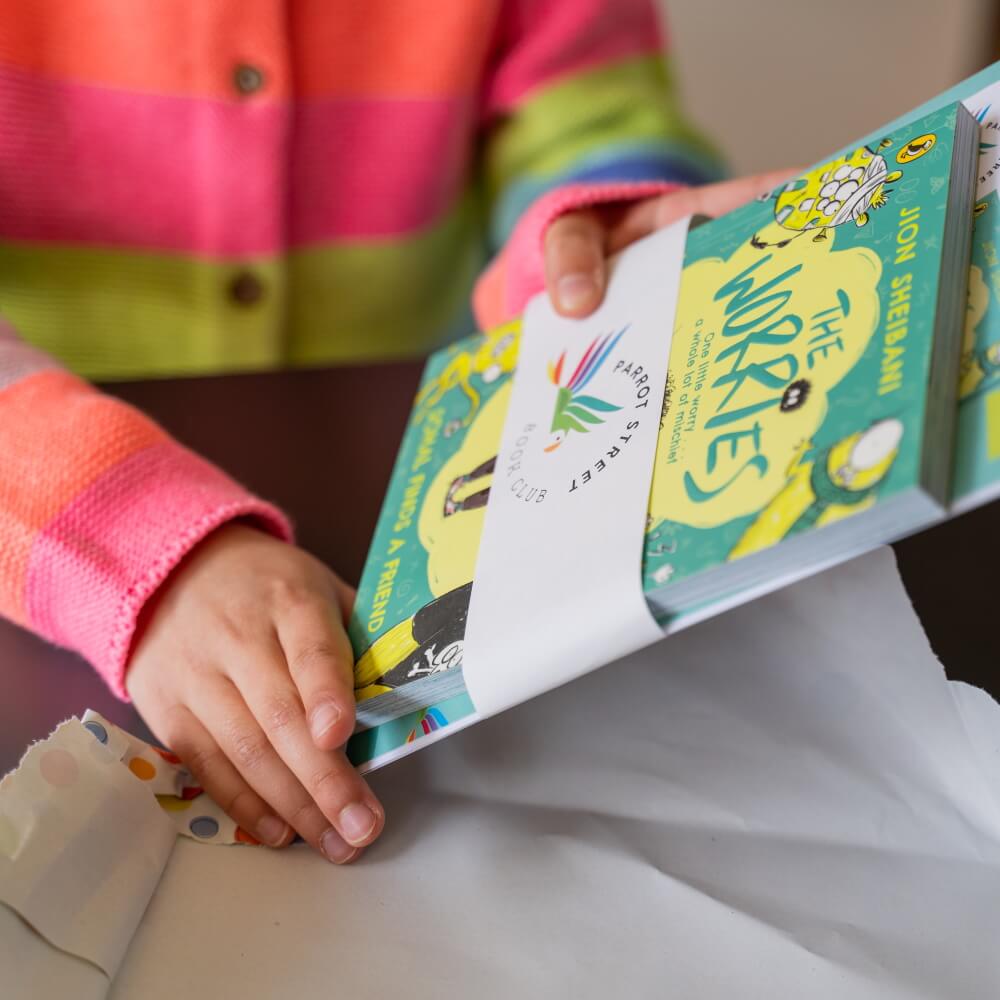Let’s talk about books
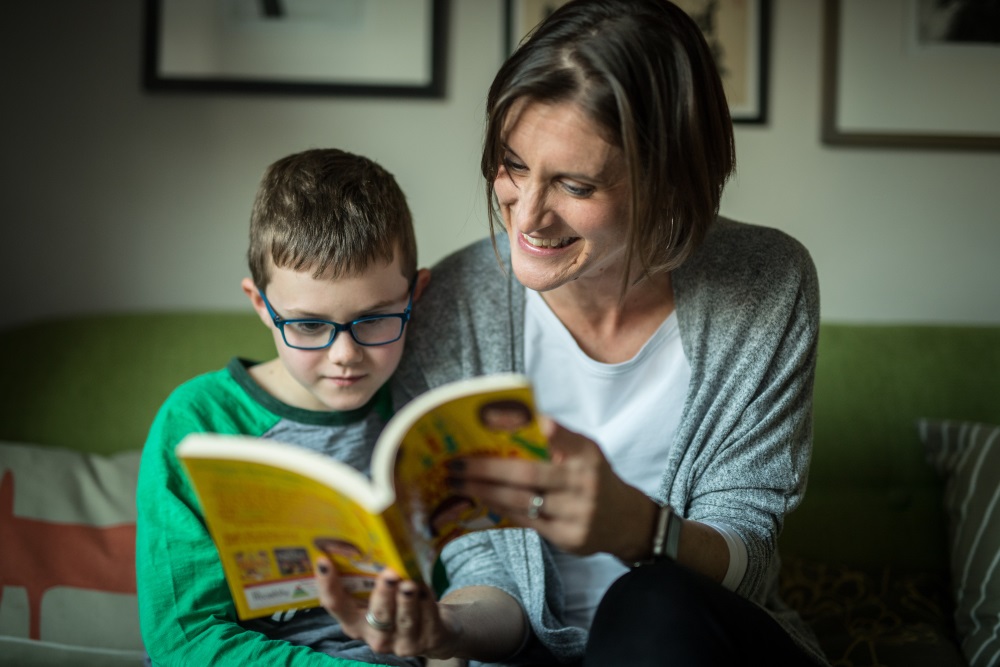
My name is Sarah and I am a bookclubber. I love my book club. In fact I love it so much I joined another one and now, twice a month, I gather with my friends around someone’s kitchen table to eat, drink and discuss a book that we have all read. For me, reading is, and always will be, a social activity. And I’m not alone. It’s estimated that there are at least 50,000 book clubs in the UK. That’s an awful lot of people talking about books.
By sharing and talking about the books we’ve read, we are able to explore what they mean to us and how they relate to our own lives, and that applies as much to our children as it does to us and our book club friends. Indeed, books allow our children to explore, question and work things out for themselves. Reading together and talking about what we’ve read can afford both parents and children the perfect opportunity to discuss difficult issues in a ‘safe’ setting.
So how do we encourage our kids to experience the joy and benefits of talking about books?
1. Read together
We are great advocates for reading together with our children, regardless of how young or old they are or how confident they are reading independently. We are all well aware of the benefits of reading aloud with young children, emerging and reluctant readers. But how many of us continue to read with our children once they have grown into confident independent readers? And yet reading the same book is the very premise of a successful book club. Make reading a shared experience so that you can talk about the books your child is reading on equal terms.
2. There are no rules
Whether you are reading and talking about a book one-to-one or in a larger family book club, make sure everyone understands that there are no rules and no right or wrong answers. It’s not about testing your child on their reading ability or comprehension skills. Being in a book club is about exploring what a book means to us as individuals, so everyone’s opinion is valid and each individual’s experience is unique.
3. Find ways to relate
Each month we include a set of book club-style questions in the packs we send along with our book selections. We hope these provide families with a great starting point for their own book club-style discussions. A lot of those questions are to do with ways in which the book they’ve read might relate to an experience the reader has been through in their own life. When you are talking about the way a character feels about something that has happened to them, or about the way in which one character relates to another, encourage your child to compare that to their own experience. When have they felt or experienced something similar?
4. Choose the right setting
The best book clubs happen in relaxed, social settings – around someone’s kitchen table, with plenty of good food (and in many cases a bottle of wine or two). Apply the same principles to your family book discussions (without the wine!). Make sure you’re somewhere your child is going to feel relaxed, for example at home on the sofa with a hot chocolate and a plate of biscuits. Or maybe out for a walk or a picnic in the park. It’s important they don’t feel like they’re doing homework or being tested - and that talking about books is fun.
5. Plan activities inspired by the books you’re reading
A great way to engage your child more deeply and constructively with the books they’re reading is to plan activities that relate to them. You could organise craft or cooking activities at home, inspired by something they’ve read. But why stop there? You could also plan trips and activities that take you out and about that will help bring the stories they’ve read alive. It’s a great way of helping your child connect the stories they’re reading with their own experiences and inspiring some lively and interactive discussions in the process.
JOIN OUR EMAIL LIST
Children's book news straight to your inbox
We love sharing product updates, book recommendations, children's activity ideas and special offers via email.




